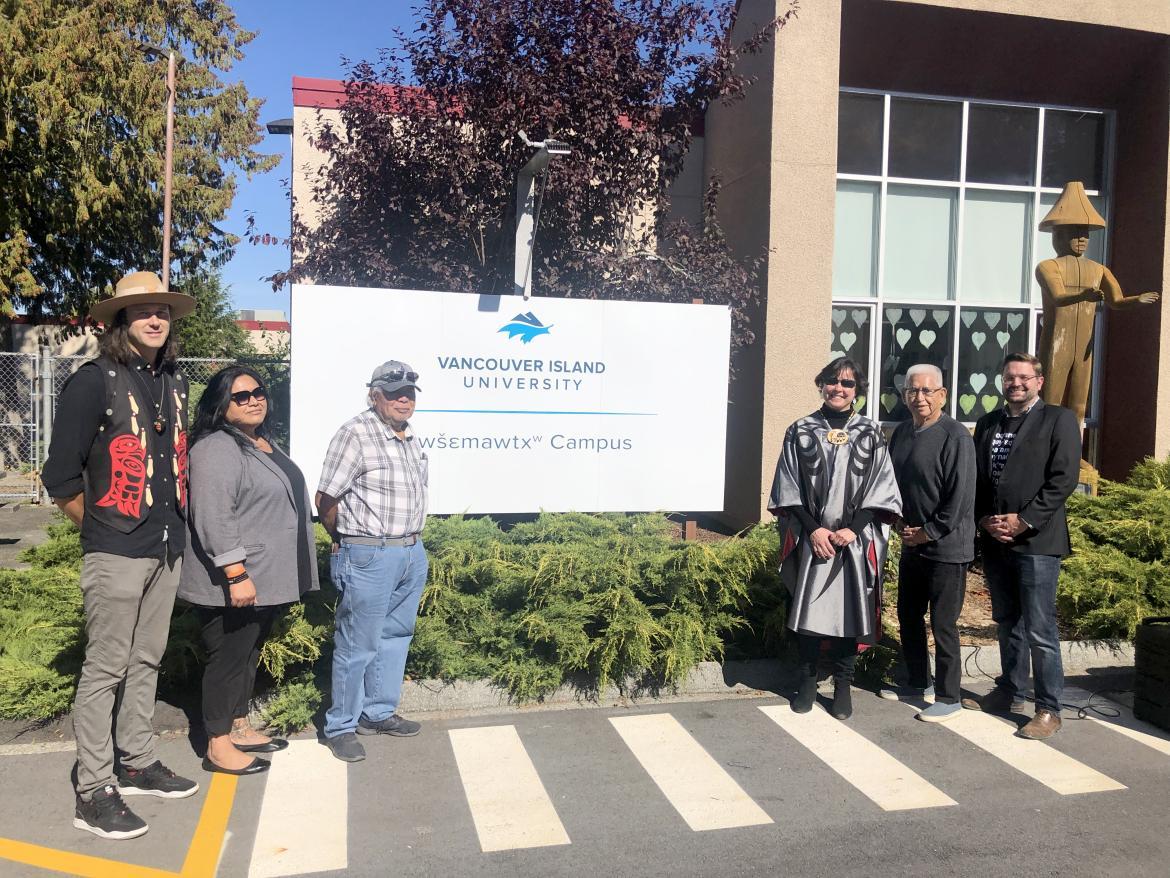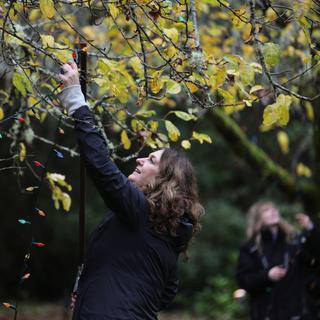A sign with the new name for VIU’s campus in the qathet region was unveiled at the campus on Tuesday. Left of the sign: Dillon Johnson toqwanon, Executive Council member, Losa Luaifoa, Executive Council member, and Leonard Bob, Elder with Tla'amin Nation. On the right: Dr. Deborah Saucier, VIU President and Vice-Chancellor, Eugene Louie, VIU Elder-in-Residence, and Liam Haggarty, academic administrator of the tiwšɛmawtxʷ campus.
By Liam Haggarty, Campus Administrator, tiwšɛmawtxʷ
It’s been about a month since the Tla’amin Nation gifted VIU the name tiwšɛmawtxʷ (tyew-shem-out) to replace the old colonial name Powell River for our campus in the qathet (ka-thet) region, which extends from Saltry Bay to Lund on the Sunshine Coast.
In the Tla’amin tradition, the gifting of a name is a significant act, which represents the building or deepening of bonds between the Nation and those who are receiving the gift. It is incumbent upon the person or people who are receiving the gift to be humble recipients, accepting responsibility for the name, becoming stewards of the meaning and use of the name, and ensuring it is used properly and honoured correctly.
The first act in the process of adopting the name is accepting it at the proper ceremony. This occurred on September 20, and according to Tla’amin protocols, we are now in a gradual process of transition. This phase involves becoming familiar with the name, learning how to pronounce it properly, and thinking about the meaning. Now that the name has been received, the work to change it throughout VIU can begin. To have begun removing references to Powell River and replacing them with tiwšɛmawtxʷ before the name was gifted would have been inappropriate and improper.
tiwšɛmawtxʷ (tyew-shem-out) means House of Learning. This name recognizes the deep history of education in the qathet region, which long predates the current campus building, and the many different paths that lead to learning. It was chosen because the word is inherently inclusive and welcoming – all peoples, cultures, and identities are welcome and can learn here. It also reflects VIU’s journey toward decolonization by disentangling this campus from the colonial roots of the area and honouring Tla’amin traditions.
The act of decolonizing must be deliberate and thoughtful, which means that as we move through this transitionary period, we will remove the old name and adopt the new one across our platforms, documents, signage and anywhere else it is referenced. Even the temporary sign currently on location at the campus is a deliberate part of the process. The installation of a permanent sign will occur when the transition process is complete and will be part of a celebration honouring the work that has occurred to get to that point.
A full implementation plan will be rolled out in the next while and we hope to have this process complete by spring. The care and concern about correct references is greatly appreciated. It shows our community really does care about this change, respects the protocols involved, and wants to be good stewards of the name. Thank you for taking this responsibility seriously and for supporting this work. Please stay tuned for more information on this transition.





